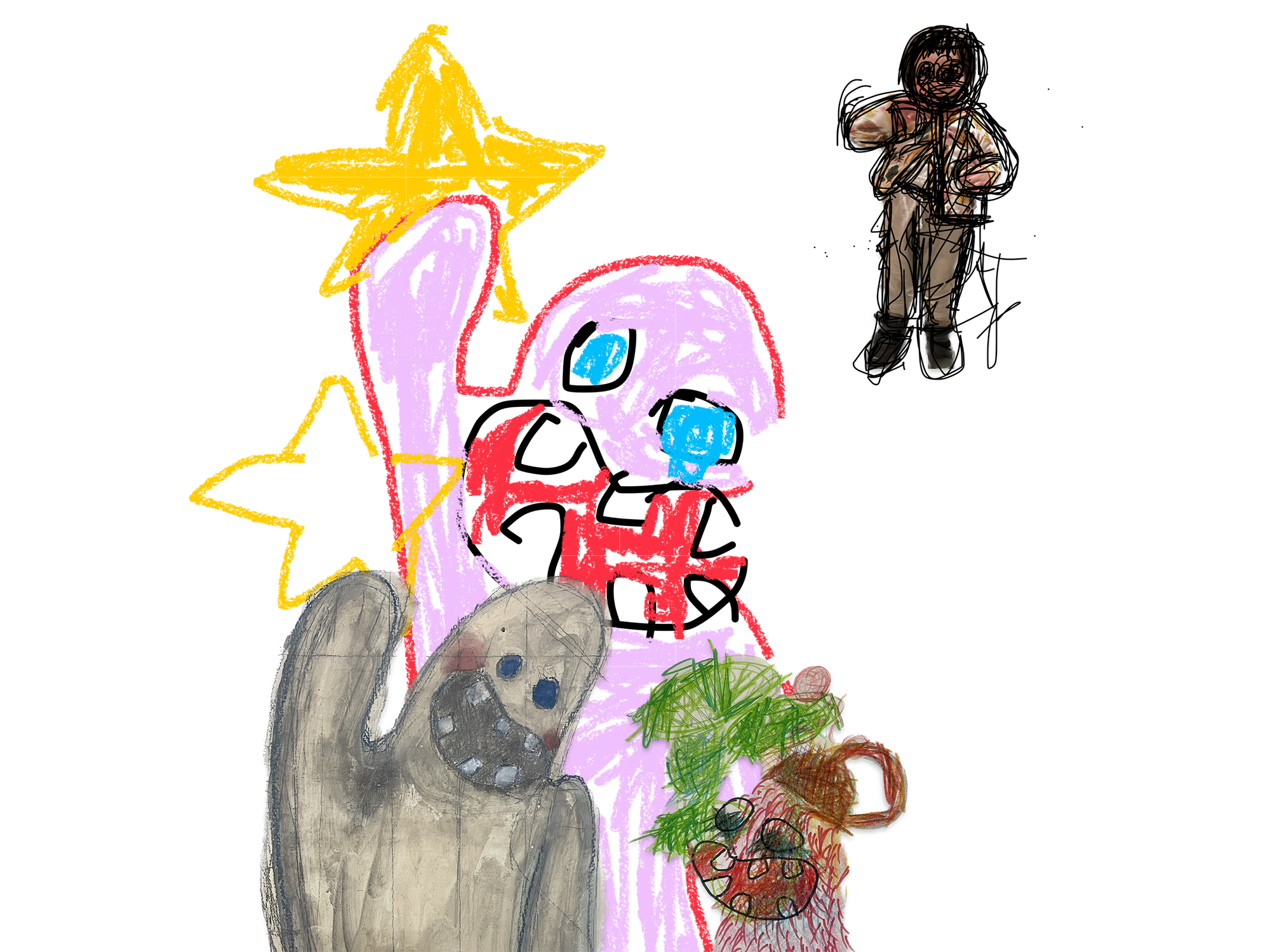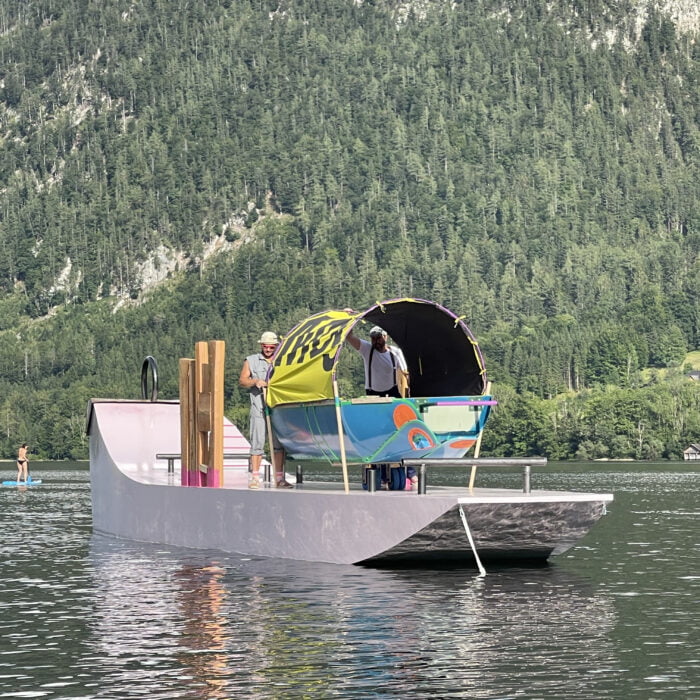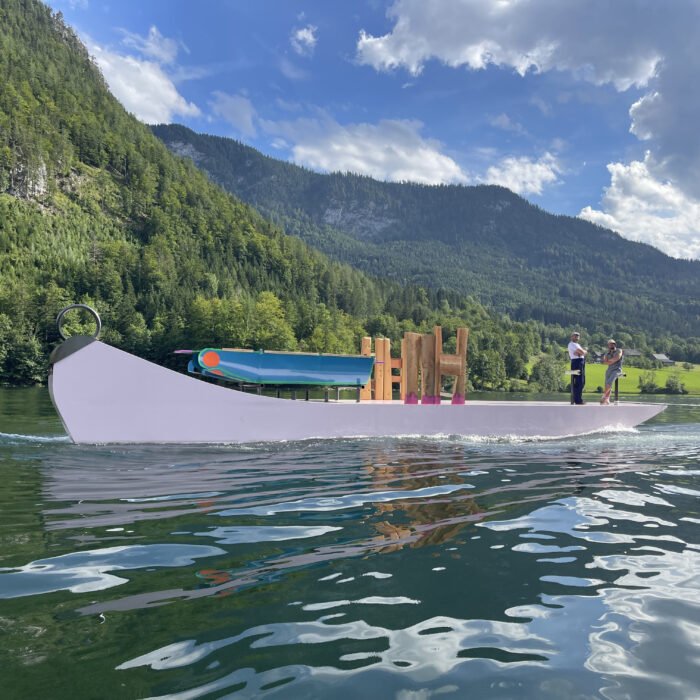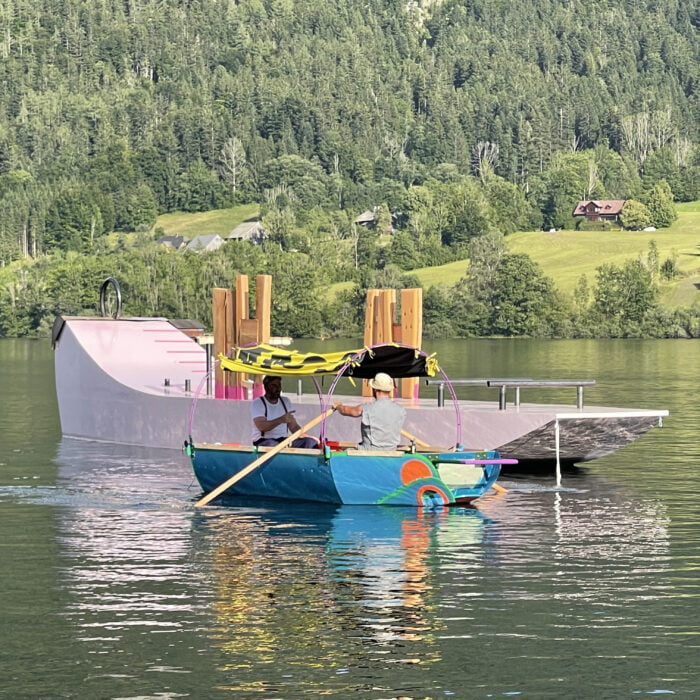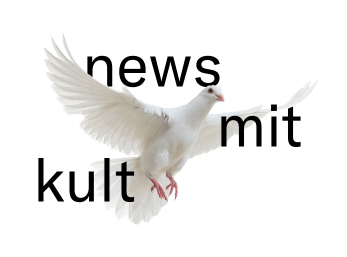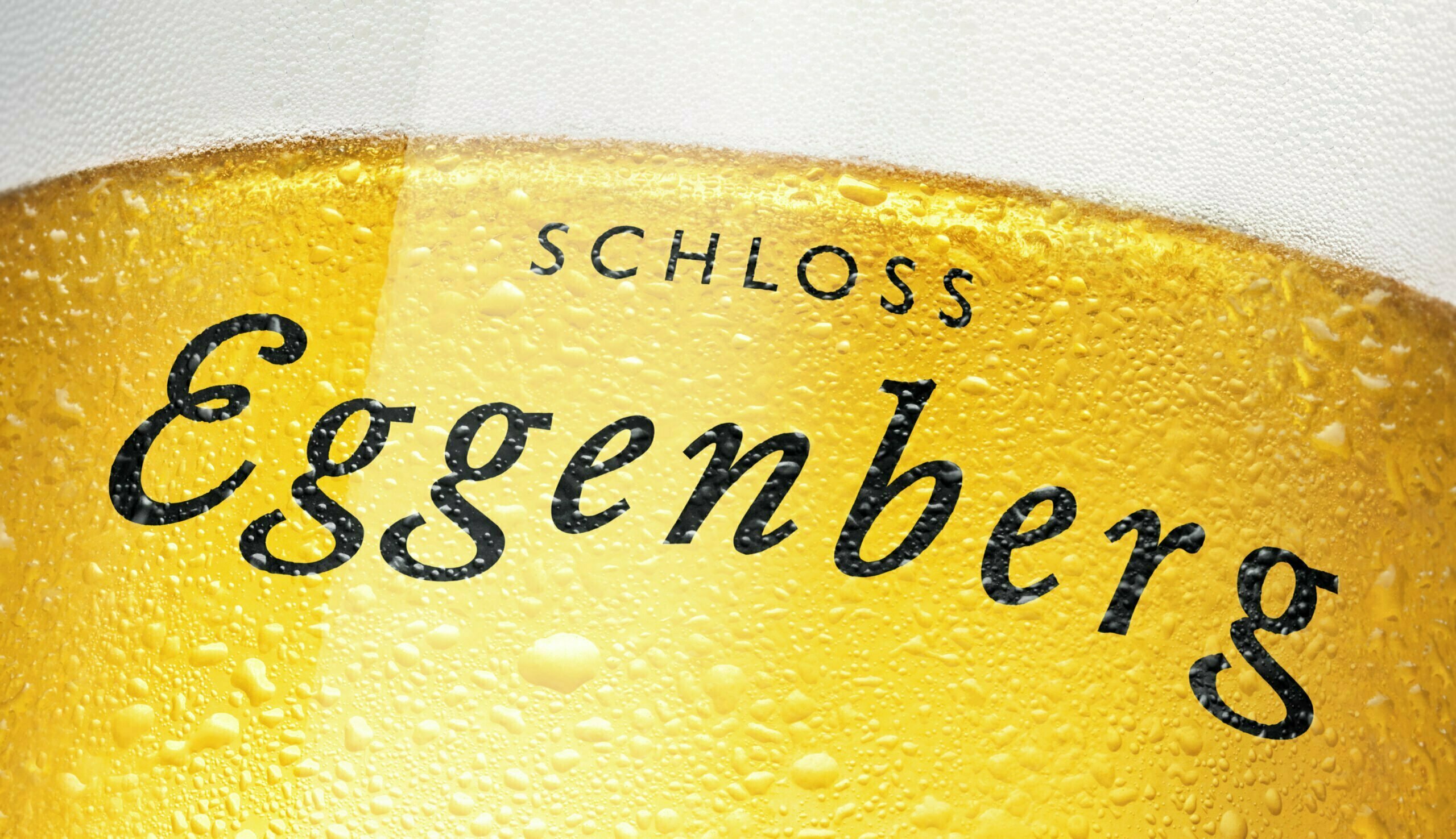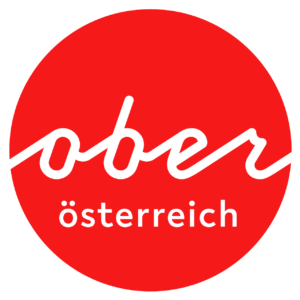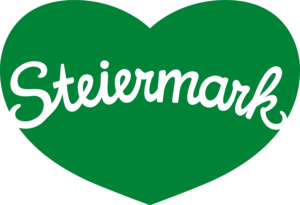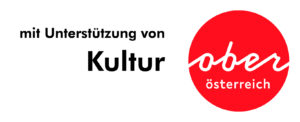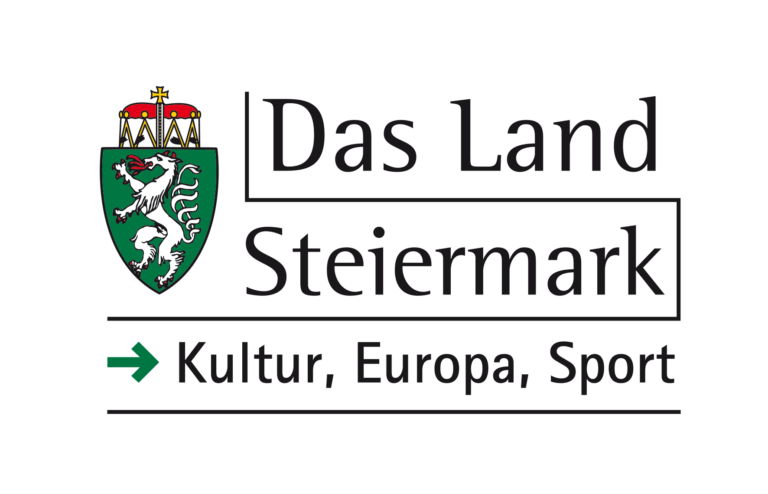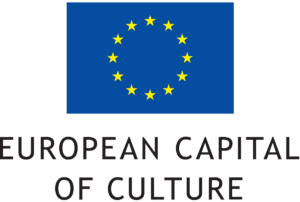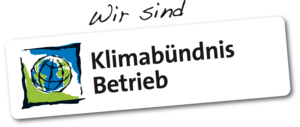An attempt at a partially chronological reappraisal of the events and thought processes of an extensive project.
Prosperity, there it is, this strange word that constantly appears on the timeline of humanity. The political promise that is supposed to guarantee a happy life, but at the same time is as subjective as each individual’s favourite ice cream flavour. Demanded, picked apart and scrutinised or even pronounced dead.
Does the prosperity of one person always mean the exploitation of another? Is post-affluence perhaps just a euphemism for poverty? And what the hell is prosperity (afterparty) actually supposed to mean?
If the optimal reference dynamic between an original idea, the strong need to realise this very idea and finally the possibility of putting it into practice is in place, then this is a good sign for an affluent society. If one of the three factors is missing, things look rather bad, especially when it comes to opportunities.
Take, for example, the idea and the need to build a sculpture: Given.
The possibility, however: Difficult.
Unless you live in one of the richest countries in the world, have the right skin colour and an acceptable gender. Where a hamburger only costs €1.40. (without fries) there is even a Europe-wide cultural support programme that guarantees funding, at least if you are on the list.
Or you want to work as a nurse in a neighbouring European country, but your ability to travel is restricted, even though you are part of a union of states that has this very freedom on its banner.
As a radio broadcaster, it is the freedom of the media that ensures that your ideas are not misappropriated to propagate political ideals. Ideals that are supposed to guarantee your own prosperity. Because prosperity has to be protected, so the narrative goes.
Protect it from the migrant who, in search of a better life, is torn between hate speech and jealousy.
Putting up a sculpture won’t change all that, but recognising the privilege that comes with being able to build a sculpture is at least a start. Because what if…
…prosperity was discussed anew, the last champagne corks were popped at the after-party and the strange word prosperity sounded a little less strange in the sunrise that heralds the new day.
In 2022, on the initiative of siblings Julia and Wolfgang Müllegger, a collective of craftspeople, sculptors and cultural workers was founded.
The idea was to combine craftsmanship with contemporary artistic expressiveness and a relevant examination of content.
Wolfgang Müllegger is a sculptor, but he also builds traditional boats, so-called Plätten, which played a major role as a means of transport in the Salzkammergut region, and not just historically:
On the one hand, as a pragmatic work tool for the Naufahrer, which enabled the export of salt and meant enormous prosperity for the House of Habsburg, and on the other hand, it is inseparably etched into the collective memory as an eternal postcard motif with Austria’s lake landscape through tourist marketing strategies and its high recognition value.
Together with the Viennese artist Georg Holzmann, Müllegger developed the fever dream of a Plätten Bauer. A sculpture that is in motion, that wants to detach itself from itself and its supposed appearance, but is repeatedly caught up by it and ultimately remains at a standstill due to its deconstruction and is degraded to a placeholder.
The sculpture was planned and built in the Kammergut GmbH workshops from November 2022 to summer 2023 and presented to the public for the first time in August.
The artists set off at the beginning of September 2023. Along the busy Danube waterway through Slovakia and Hungary to the Bega Canal, before rowing against the current towards Timisoara in Romania. Accompanied on her bike by the artist and radio producer Uli Loskot, the aim of this research trip was to collect content. Sounds, images, conversations and encounters that can offer a further level beyond the artistic meta-levels in the form of visual installations and audio recordings.
In retrospect, the confrontations with one’s own prejudices and privileges, fears and the supposed knowledge of precisely these should probably be the most instructive, because unplannable, experiences of this endeavour.
In the main exhibition of the European Capital of Culture Bad Ischl Salzkammergut 2024 “sudhaus – art with salt and water” in Bad Ischl, the uncut video recordings of the artist and radio producer Uli Loskot are now being shown. A central piece of seating furniture, built from discarded flats, is a reference to the classic waiting room.
